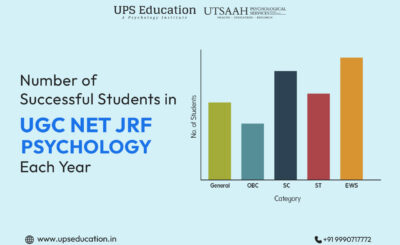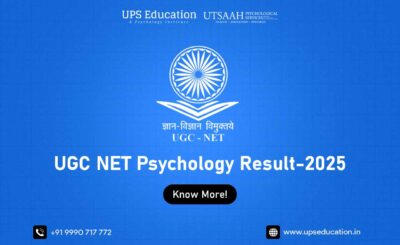The L.B.S. Centre for Science and Technology, Thiruvananthapuram is inviting applications for State Eligibility Test (SET) on behalf of the Government of Kerala. Learn more about this exam, and Psychology Paper II Syllabus in this article.
About State Eligibility Test (SET)
State Eligibility Test, or SET is a state-level eligibility test that is conducted for the selection of eligible candidates for Assistant Professor award. Unlike NET, the selection is done for that specific state only.
Candidates should complete their Master’s in Psychology to appear for the SET exam. The qualifying marks may vary for different states. Usually, minimum 55% marks is necessary.
Applications are available for Kerala State Eligibility Test January 2024 Exam. Apply Now!
Kerala SET Psychology Paper II Syllabus
Here is the detailed module-wise syllabus for Kerala State Eligibility Test (SET) January 2024 Exam.
UNIT 1: Cognitive Process
| Modules | Name of Modules | Syllabus |
| 1. | Attention | Consciousness and Attention: Preconscious processing; Controlled and Automatic processes. Functions of Attention: Signal Detection, Vigilance, Selective Attention, Divided Attention, Sustained Attention and Alternating Attention. Models of Attention: Selection models of attention (Early filtertheory, Attenuated filtertheory, Late filter theory, Multimode theory); Capacity model (Attention resources theory, Multiple resource model) Physiological basis of attention |
| 2. | Perception | Nature of Perception: Perceptual organization and constancies; Depth perception; Viewer, Person, and Landmark centered approaches to form perception. Bottom up Approach: Direct Perception; Template and Prototype Theory; Feature Theory. Top down Approach and Computational Theory Physiological basis of Aerception. |
| 3. | Memory and Forgetting | Models of Memory: Atkinson-Shiffin model, Levels of processing model, Nature of memory model, Working Memory model, PDP or connectionist model. Why We Forget: Consolidation theory, Interference theory, Decay theory, Cue-dependent forgetting, Displacement theory, Repression, Amnesia. Testing Memory: Components of memory tests; WMS and PGI memory test. Physiological basis of memory. |
| 4. | Intelligence and Creativity | Traditional Theories: Two factor theory (Spearman and Cattell); Multifactor theory; Hierarchical model; Primary mental abilities or Group factor theory; Structure of intellect model. Contemporary Theories: Triarchic theory; Multiple intelligence theory; Emotional intelligence theory; PASS model. Nature of Creativity; Divergent and Convergent thinking; Little c and Big C; Stages of creative thinking; Types of Creative contributions. |
| 5. | Thinking | Problem Solving: Types of problem; Approaches to problem solving; Types of heuristics, Reproductive and productive problem solving; Obstacles to problem solving. Decision Making: Classical or rational man theory; Subjective expected utility theory; Bounded rationality; Elimination by aspects; Biases and heuristics. Reasoning: Deductive reasoning (Conditional – Types or Propositional calculus and Errors), Syllogistic – Linear, Conditional, and Errors); Inductive reasoning. |
UNIT 2: Emotion and Motivation
| Modules | Names of Module | Syllabus |
| 1. | Biological aspects of motivation | Instinct theory and Ethology; Homeostasis and arousal theory; Biological needs and drive reduction. |
| 2. | Psychological aspects of motivation | Locus of control and motivation; John Hollands theory of motivation; Psychoanalytic theory and unconscious motivation; Activation theory, Theories of Erikson, Murray, and Maslow, Motivation in behaviouristic theory. |
| 3. | Social aspects of motivation | Intrinsic and extrinsic motivation; Level of aspiration; Social needs; Knowledge of result; Prestige suggestion; Humanistic model; Frustration aggression model. |
| 4. | Motivation and Emotion | Types of emotion, Theories of emotion (James-Lange theory, Cannon-Bard theory, Schachter-Singer theory, Cognitive mediational theory, Facial feedback theory); Stress and coping. The concept of cortical arousal and ARAS; Biological basis of motivation and emotion. |
| 5. | Motivation and learning | Motivation in Learning: Self efficacy Zone of Proximal Development; Discovery learning; Gange’s theory. Learning by Association: Classical conditioning; One shot learning; Conditioned emotional reaction. Learning as Effect of Behavior: Operant conditioning; Connectionism; Systematic behavior theory or mathematical model. Cognitive theories of learning: Latent learning; Insight learning; Expectancy theory. Verbal learning. Neurological basis of learning and memory. |
UNIT 3: Psychometry and Research Methodology
| Modules | Name of Module | Syllabus |
| 1. | Psychological Measurement | Qualitative Vs. quantitative approach in the study of behavior Scales of Measurement: Nominal, Ordinal, Interval, and Ratio Scales Classification of Psychological tests: Individual and group tests, Speed and Power tests, Verbal and Non-verbal tests, Paper and pencil tests and Performance tests, Culture free and culture fair. Psychometric assessment. Intelligence Tests: The Stanford-Binet Tests, The Wechsler Scales. Aptitude Tests: Tests of special abilities, Differential aptitude tests Achievement test: General achievement batteries, Special achievement test. Tests of Creativity: Guilford, Torrance. Personality Test: Interviews, observation, Situational tests, Self-reports, inventories, questionnaires, rating scales, forced choice methods, check-lists, Q-sorts, Semantic differential, sociometry, content analysis, projective techniques. |
| 2. | Test Construction | Test Conceptualization: Item preparation, Item analysis, Estimation of reliability, validity, and norms, Preparation of test manual. Reliability: Concept, reliability estimate, types: test-re-test, parallel forms, split–half, other methods of estimating internal consistency, inter-scorer reliability, purpose of reliability co-efficient. Validity: Concept, types: face, content, criterion, construct, convergent, divergent, relationship between validity to reliability. Norms: Meaning of norm-referencing and criterion referencing Steps in developing norms. Types: age-equivalent norms, grade-equivalent norms, percentile norms, standard score norms. |
| 3. | Quantitative Research Methods | Nature of quantitative data. The Concept of Variance: Partitioning of variance, controlling error variance through research designs. Different kinds of Quantitative Research Methods: Experimental research methods Characteristic features of experimental research methods Between group designs: Two group designs, ANOVAR designs, Factorial designs Within group designs. Quasi-Experimental research methods, Time series, equivalent time-samples, on equivalent control group designs, counterbalanced design, separate-sample pretest-posttest design, patched–up, design, longitudinal design, cross-sectional design, cohort design. Ex-post-facto Research: Correlational design, criterion-group design – Non-experimental designs: Observational research, Archival research, Case study research. Small N designs: Advantages and disadvantages of small N designs, Different kinds of small N designs. |
| 4. | Qualitative Research Methods | Nature of qualitative data. Different kinds of Qualitative Research: Action research, Case study research, Ethnography, Grounded theory, Phenomenology, and Historical research. Techniques to Collect Qualitative Data: Interview, Narrative and metaphor, Observation, Focus group discussion. Techniques to Analyze Qualitative Data: Hermeneutics, Semiotics. |
| 5. | Sampling and Data Processing | Different Sampling Techniques – Probability sampling methods, Non-probability sampling methods. Data Processing – Tabulation and coding, Statistical analysis of the data, Estimating differences among the groups: t-tests, ANOVA, MANOVA, Discriminant analysis, non-parametric methods. Estimating relationships among variables: Pearson r, Rank correlation, Multiple correlations, Factor Analyses. |
UNIT 4: Personality and Social Psychology
| Modules | Name of Modules | Syllabus |
| 1. | Describing Personality | Philosophical Perspectives, Personality Research: True experiments, Quasi experiments, Correlational studies, Case and epidemiological studies, Personality assessment: objective methods, projective methods, behavioral assessment methods. |
| 2. | Perspectives of Personality | Biological and Evolutionary Perspective: Social Darwinism and Eugenics. The genetic dimension of evolution, Contributions of Darwin, Lamarck, Mendel, Evolutionary Psychology: Natural selection of psychological mechanisms, Genes and behavior, Eysenck’s Model of nervous system temperament. Psychodynamic Perspective: Classical Psychoanalysis: Sigmund Freud, Neoanalytic theories: Carl Jung, Alfred Adler, Karen Horney, Eric Fromm, HarryStack Sullivan, Erik Erikson, Henry Murray’s Personology, Object relations and attachment theories: Margaret Mahler, Bowlby, Melanie Klein, Heinz Kohut, Winnicott, Otto Kernberg. Behavioral Perspective: Dollard & Miller, B.F. Skinner. Trait Perspective: G.W. Allport, R. B. Cattell. Cognitive and Social Cognitive Perspective: Lewin’s Field theory, Kelley’s Personal Construct Theory, Rotter’s locus of control approach, Bandura’s Social Cognitive learning theory. Humanistic Existential Perspective: Carl Rogers Rollo May, Victor Frankl, Abraham Maslow. Eastern Perspective: Yoga, The Bhagavad Gita, Sufism, Buddhism Jainism, Taoism. |
| 3. | Social Perception | Social Self: Sources of self-knowledge, Aspects of self-knowledge: self-schemas, self-discrepancies, Self-regulation, The self-concept, Self-esteem, Self-presentation. Perceiving Persons: Impression formation and impression management, Attribution: attribution theories, attribution biases, culture and attribution, motivational biases, Information integration. Confirmation Biases: Perseverance of beliefs, confirmatory hypothesis testing, the self-fulfilling prophecy. Stereotypes, Prejudice, and Discrimination: Nature and origin-social categories and intergroup conflict, social identity theory, culture and social identity, culture, and socialization, how stereotypes distorts perceptions and resist change, automatic stereotype activation, prejudice: origin, sources, targets, and consequences, Reducing stereotypes, prejudice, and discrimination, intergroup contact, intergroup friendships, and extended contact. |
| 4. | Social Influence | Attitudes: Measurement, formation, attitudes and behavior, persuasion by communication, persuasion by our own actions, role playing, cognitive dissonance theory, changing attitudes. Conformity: Classical studies, compliance, obedience: Milgram’s research, social impact theory. Groups: fundamentals of groups, individuals in groups, social facilitation, social loafing, group performance, brainstorming, group polarization, groupthink, escalation effects. Conflict: Mixed motives and social dilemmas, conflict escalation and reduction, negotiation. |
| 5. | Social Relation | Need to belong, the initial attraction, close relationships, interdependent relationships, romantic relationships. Pro-social behavior, evolutionary and motivational factors, situational influence, bystander effect, time pressure, location and helping, culture, moods, pro-social media effects, role models, and social norms. Altruistic Personality, Interpersonal Influences: perceived characteristic of the person in need, gender, and helping. Aggression-culture, gender, and individual difference, causes of human aggression, the frustration-aggression hypothesis, negative affect, prevention and control of aggression. |
UNIT 5: Psychopathology
| Modules | Name of Modules | Syllabus |
| 1. | Diagnosis and Classification of Mental Disorders | DSM & ICD classifications. Case Taking Practices – MSE, MMSE, Clinical Interview, case study, common signs and symptoms of mental disorders. |
| 2. | Neurodevelopmental disorders | Intellectual disabilities, pervasive and specific developmental disorders, communication disorders, autism spectrum disorders, specific learning disorders, and behavioral and emotional disorders with onset in childhood and adolescence. |
| 3. | Major Mental Disorders | Schizophrenia spectrum and other psychotic disorders- schizophrenia, schizo-typal, delusional, and other non-psychotic disorders, affective disorders- bipolar – depressive disorders. |
| 4. | Personality disorders, sexual dysfunctions, gender dysphoria, mental and behavioural disorders due to psycho active substance use. | |
| 5. | Anxiety disorders, dissociative disorders, trauma – stress related, somatoform disorders, obsessive-compulsive related disorders. | |
| 6. | Neurocognitive disordersorganic mental disorders, vascular dementia, amnestic disorder, delirum, personality and behavioural disorders due to known physiological conditions, unspecified organic mental disorders. |
UNIT 6: Applied Psychology
| Module | Name of Module | Syllabus |
| 1. | Psychology in Organizational Setting | Approaches to organizational behavior – Training for Organizational Managers – Sensitivity training, Cultural diversity training, protection against sexual harassment training, 360-degree feedback, Mentoring, Organizational Counseling – Chronic absentees, accident prone employee, alcoholism and drug addition, indiscipline employees. |
| 2. | Psychology in School Setting | Approaches to Behavioral Management – Reality Model, Decisive Discipline, Assertive Discipline – Class room management – Dealing with problem behavior, Communication strategies, Positive behaviors support – School counseling – Therapeutic intervention – Home & School, Psychosocial implication of disabilities, Special education. |
| 3. | Psychology in clinical setting | Psychodynamic Psychotherapies – Supportive Psychotherapies, Crisis Intervention, Hypnosis, Group Therapies. Behavior Therapies – Relaxation and Systematic Desensitization – Progressive muscular relaxation, Guided – Somato – Psychic Relaxation, Assertive Training, Modeling, Contingency Management, Response Elimination and Extinction Procedure, Punishment and Aversion Procedures, Applied Behavior Analysis. CBT, Beck Cognitive Therapy, RET, Biofeedback, Stress inoculation. |
| 4. | Psychology of Health and Well-Being | Bio-Psychosocial Approaches – Promotion of psychological, social, and physical well-being, health related beliefs and attitudes, health enhancing behavior, health compromising behavior, Type A and Type B personalities, Psycho-neuro-immunology, Pain & its management. |
| 5. | Emerging Trends in Psychology | Sports – Personality Profile of Athletes – Team Cohesion – Combating Drug Abuse in Sports Persons. Forensic – Biological Evidence: DNA Finger Printing, Brain Mapping; Detection of Deception; Interrogation, Polygraph, Narcoanalysis. Environmental Psychology – Psychological Roots of Environmental Psychology – Climate and Well-Being – Pollution and its Effect on Human Being – Disaster Management. |
Learn more about our Live interactive classes for UGC NET/JRF Entrance Preparations.
Click here to read more about the UGC NET/JRF Entrance Exam.
For the latest updates or any queries related to psychology entrance preparation, follow us on Instagram and Facebook.






